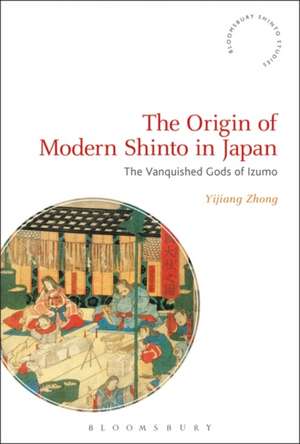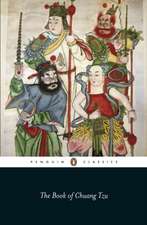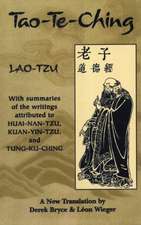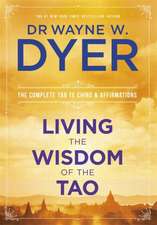The Origin of Modern Shinto in Japan: The Vanquished Gods of Izumo: Bloomsbury Shinto Studies
Autor Professor Yijiang Zhongen Limba Engleză Hardback – 5 oct 2016
| Toate formatele și edițiile | Preț | Express |
|---|---|---|
| Paperback (1) | 238.22 lei 6-8 săpt. | |
| Bloomsbury Publishing – 18 apr 2018 | 238.22 lei 6-8 săpt. | |
| Hardback (1) | 772.98 lei 6-8 săpt. | |
| Bloomsbury Publishing – 5 oct 2016 | 772.98 lei 6-8 săpt. |
Preț: 772.98 lei
Preț vechi: 1112.45 lei
-31% Nou
Puncte Express: 1159
Preț estimativ în valută:
147.91€ • 161.17$ • 124.64£
147.91€ • 161.17$ • 124.64£
Carte tipărită la comandă
Livrare economică 23 aprilie-07 mai
Preluare comenzi: 021 569.72.76
Specificații
ISBN-13: 9781474271080
ISBN-10: 1474271081
Pagini: 272
Ilustrații: 24 bw illus
Dimensiuni: 156 x 234 x 20 mm
Greutate: 0.48 kg
Editura: Bloomsbury Publishing
Colecția Bloomsbury Academic
Seria Bloomsbury Shinto Studies
Locul publicării:London, United Kingdom
ISBN-10: 1474271081
Pagini: 272
Ilustrații: 24 bw illus
Dimensiuni: 156 x 234 x 20 mm
Greutate: 0.48 kg
Editura: Bloomsbury Publishing
Colecția Bloomsbury Academic
Seria Bloomsbury Shinto Studies
Locul publicării:London, United Kingdom
Caracteristici
First
book
to
show
that
the
modern
history
of
Shinto
is
not
merely
a
national
development
but
a
response
to
early
modern
and
modern
global
trends
Notă biografică
Yijiang
Zhongis
Associate
Professor
at
the
Institute
for
Advanced
Studies
on
Asia
at
the
University
of
Tokyo,
Japan
and
a
Research
Fellow
at
the
Center
for
Interdisciplinary
Study
of
Monotheistic
Religions
at
Doshisha
University,
Kyoto,
Japan.
Cuprins
List
of
FiguresAcknowledgementsNote
on
Text/TranslationIntroduction
1:
Resurrecting
the
Great
Lord
of
the
Land,
1653-16672:
The
Month
without
the
Gods,
1600-18713:
True
Pillar
of
the
Soul,
1792-1846
4:
Converting
Japan,
1825-18755:
Competing
Ways
of
the
Gods,
1872-1889Conclusion
The
Izumo
Gods,
Nation,
and
EmpireNotesBibliographyIndex
Recenzii
Zhong's
book
maintains
a
refreshingly
wide
gaze,
focusing
simultaneously
on
local,
transregional,
and
transcultural
flows
that,
by
his
argument,
all
impacted
the
internal
developments
of
the
Izumo
Shrine
and
its
shifting
position
within
the
nascent
intellectual
and
political
fields
of
early
modern
and
modern
Japan.
Such
a
dynamic
framework
is
new,
and
its
expanding
scope
is
yielding
exciting
results.
Zhong moves away from the traditional understanding of Shinto history as something completely internal to the nation of Japan, and instead situates the formation of Shinto within a larger geopolitical context involving intellectual and political developments in the East Asian region and the role of western colonial expansion.
Fills a prominent hole in the existing literature by addressing the early modern and modern history of Izumo Shrine and its deity . Zhong's volume is timely, well researched, and focused . An important contribution to our understanding of Shinto in the Edo- and early-Meiji periods.
This volume contains a collection of insightful materials for those scholars, students, and practitioners who are in Japanese studies, or the fields of history, philosophy, ethnology, cultural studies, sociology, anthropology, and religious studies.
This book presents a stimulating case study of the interdependent relationship between the secular and the religious. Yijiang Zhong convincingly argues that the establishment of the public and secular Japanese nation-state was possible only by consigning some Shinto schools to the private, religious sphere. Highly recommended for anyone interested in Shinto and Japanese history as well as critical study of religion and secularization.
With this rich, nuanced, carefully researched and deeply thoughtful work, the sophistication and maturation of Shinto studies continues. Too long over-looked, Izumo, its grand shrine, and complex tradition, are illuminated by Zhong in ways that nothing else in English gets close to. A tour de force, this work sets new standards for works in Japanese religion and thought.
Zhong moves away from the traditional understanding of Shinto history as something completely internal to the nation of Japan, and instead situates the formation of Shinto within a larger geopolitical context involving intellectual and political developments in the East Asian region and the role of western colonial expansion.
Fills a prominent hole in the existing literature by addressing the early modern and modern history of Izumo Shrine and its deity . Zhong's volume is timely, well researched, and focused . An important contribution to our understanding of Shinto in the Edo- and early-Meiji periods.
This volume contains a collection of insightful materials for those scholars, students, and practitioners who are in Japanese studies, or the fields of history, philosophy, ethnology, cultural studies, sociology, anthropology, and religious studies.
This book presents a stimulating case study of the interdependent relationship between the secular and the religious. Yijiang Zhong convincingly argues that the establishment of the public and secular Japanese nation-state was possible only by consigning some Shinto schools to the private, religious sphere. Highly recommended for anyone interested in Shinto and Japanese history as well as critical study of religion and secularization.
With this rich, nuanced, carefully researched and deeply thoughtful work, the sophistication and maturation of Shinto studies continues. Too long over-looked, Izumo, its grand shrine, and complex tradition, are illuminated by Zhong in ways that nothing else in English gets close to. A tour de force, this work sets new standards for works in Japanese religion and thought.






















